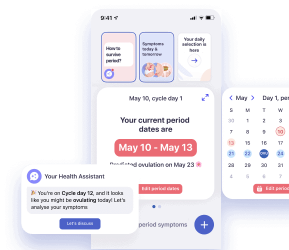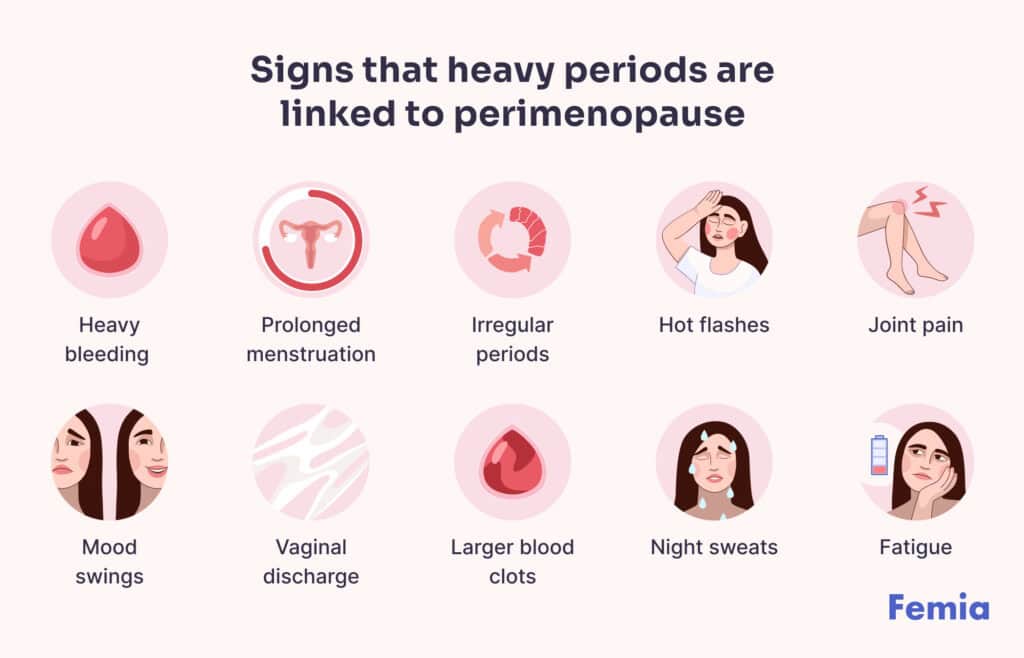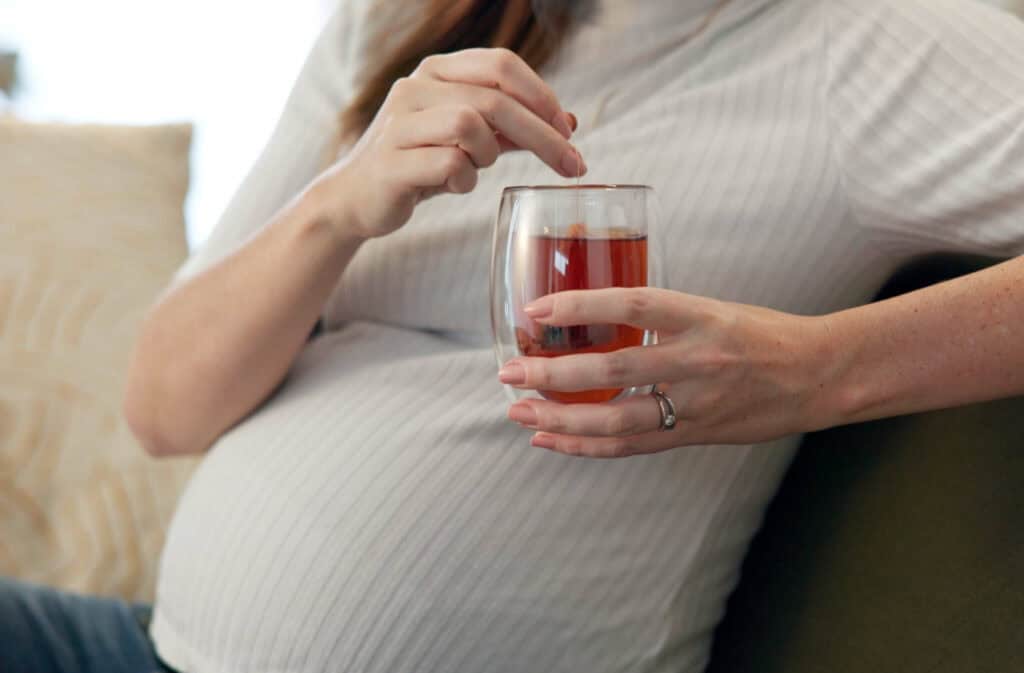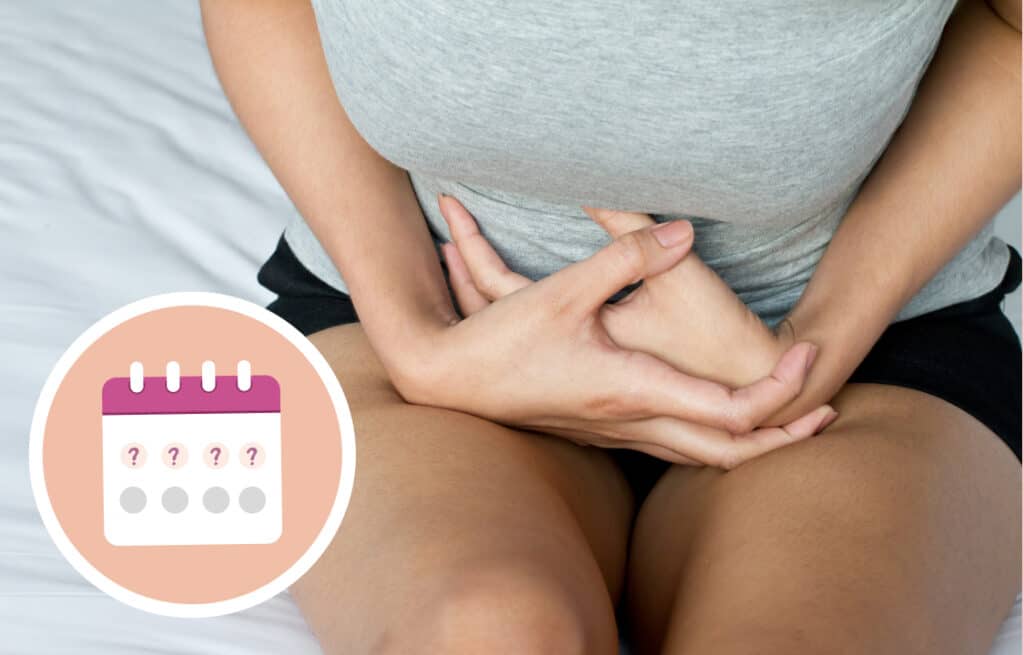Femia > Health Library > Your cycle > Health > Heavy periods after 40 with clots: Causes, symptoms, and management
Heavy periods after 40 with clots: Causes, symptoms, and management

- Updated Feb 20, 2025
- Published
CRAFTED BY HUMAN
Crafted by human At Femia, we provide accurate and up-to-date information at every stage of your journey, from trying to conceive, pregnancy and postnatal support. All content is created by a real person based on in-depth research and own professional experience. Femia ensures that you will receive expert advice, strict accuracy and a personalized approach from our authors/medical experts. Learn more about our editorial policy.
FACT CHECKED
Fact checked At Femia Health, we maintain the highest standards of editorial excellence in delivering content focused on helping you conceive, guiding you through pregnancy, and supporting you postpartum. Explore our content review principles to learn how we ensure the accuracy and quality of our health and lifestyle tips for every stage of your journey.
- Heavy periods after 40 with clots can become more common due to hormonal fluctuations, particularly declining estrogen and progesterone levels. These changes can lead to irregular endometrial shedding and, in some cases, excessive thickening of the uterine lining (endometrial hyperplasia), which contributes to heavy bleeding.
- The natural ways to manage heavy bleeding after 40 include dietary changes, increasing your intake of iron, vitamin C, and magnesium, and managing stress to support hormonal balance.
- Severe bleeding may require medical intervention, including hormone therapy to regulate menstrual cycles, medications to reduce blood loss, or surgical options such as endometrial ablation or hysterectomy in extreme cases. In most cases, ovaries are preserved unless there is a medical indication for their removal.
Perimenopause is when your body starts its journey towards menopause – which marks the end of your reproductive years. This phase begins around the end of your 30s or in your early 40s. During this time, your ovaries may produce lower levels of reproductive hormones, like estrogen, causing your menstrual cycle to become irregular with heavy or clotty periods.
So, are heavy periods after 40 with clots normal or a matter of concern and is heavy bleeding a sign of menopause? Let’s discuss the signs and causes of perimenopause and menopause heavy bleeding in detail and when to consult your doctor.

Why do periods get heavier after 40?
Estrogen is a reproductive hormone that is necessary for regulating your menstrual cycle and maintaining sexual health. It helps with the development of secondary sex characteristics, like hips and breasts, thickens the uterine lining for a possible pregnancy, and regulates menstrual cycles.
However, as you reach perimenopause or menopause after your 40s, the estrogen levels naturally begin to fluctuate and decline.
Estrogen stimulates the thickening of the uterine lining, while progesterone helps regulate this growth and prevent excessive buildup. Fluctuations in estrogen and progesterone during your 40s can lead to irregular shedding of the uterine lining, sometimes resulting in heavy or prolonged periods. In some cases, excessive thickening of the lining (endometrial hyperplasia) can occur, which may require medical evaluation.
👉Find out more: Can you get pregnant during perimenopause?
Signs that heavy periods are linked to perimenopause

The common signs that heavy periods are linked to perimenopause may include:
- Heavy bleeding with increased blood flow
- Prolonged menstrual bleeding that lasts longer than usual
- Irregular periods that start and stop
- Hot flashes
- Mood swings
- Joint pain
- Night sweats
- Fatigue
- Vaginal discharge
- Larger blood clots and episodes of “flooding” bleeding
Common causes of heavy periods with clots in your 40s and 50s
The common causes of heavy bleeding during menopause or perimenopause heavy periods flooding in your 40s and 50s include:
1. Perimenopause hormonal imbalances
The foremost cause of heavy periods after 40 with clots is the fluctuations or decline in estrogen and progesterone. The hormonal imbalance causes the uterine lining to thicken excessively, leading to heavy bleeding with clots.
2. Thyroid disorders and other underlying health conditions
Another potential cause of heavy periods after 40 with clots can be an underlying health condition, like thyroid disorders or fibroids. Uterine fibroids and polyps are a condition that causes non-cancerous growths in the uterus which can cause heavy bleeding. Similarly, issues with thyroid function can disrupt hormonal balance and lead to heavy bleeding.
3. Medications or treatment
Certain medications, like warfarin, aspirin, tamoxifen, birth control pills, or hormonal replacement therapy can also cause heavy bleeding as a side effect.
4. Complications in pregnancy
Although pregnancy after 40 is rare, it is still possible. Complications in pregnancy, like miscarriage or ectopic pregnancy can also cause heavy bleeding with clots.
When is heavy bleeding a cause for concern?
Heavy periods at 50 and 40 are a cause for concern if:
- Periods last longer than 7 days.
- Excessive tiredness, dizziness, or shortness of breath with perimenopause heavy bleeding.
- Frequent need to change tampons or pads in the middle of the night due to excessive bleeding.
- Passing blood clots larger than a quarter.
How to stop heavy bleeding naturally during perimenopause
So, how to stop heavy bleeding during menopause naturally? Here are some common and natural ways to reduce or manage heavy bleeding during perimenopause or menopause:
1. Dietary changes and supplements
Eating foods high in iron and vitamin C, like citrus fruits, red meat, leafy greens, and beans can help reduce your symptoms and fight anemia, which is caused by heavy bleeding. You can also add iron supplements to your daily routine after consulting your healthcare provider.
2. Stress management techniques
Perimenopause may cause mood swings and stress can aggravate hormonal imbalance. Hence, to support hormonal production and balance, manage your stress. You can do this through various stress management techniques, like regular exercise, meditation, and deep breathing.
👉Find out more: Sex after menopause: 10 tips to have orgasms after menopause
3. Herbal remedies
Another natural way to manage heavy bleeding during perimenopause is using herbal remedies. Some common herbs possessing anti-inflammatory properties, that are rich in iron, and that are known to help with heavy menstrual bleeding, include ginger, cinnamon, turmeric, red raspberry leaf, nettle, and yarrow.



Medical treatments for heavy periods after 40
The common medical treatments for heavy periods after 40 include:
1. Medications
Medications, like iron supplements and non-steroidal anti-inflammatory drugs, like aspirin and ibuprofen can help reduce bleeding, manage anemia symptoms, and ease cramps.
2. Birth control pills
Birth control pills can lighten blood flow. They can reduce bleeding or even stop periods.
3. Hormone therapy
Another treatment option that is more effective than birth control pills is hormone therapy or the insertion of a hormonal intrauterine device (IUD) in the uterus. IUDs continuously release progesterone in the body and help control the loss of menstrual blood.
4. Surgery
If bleeding is severely heavy and difficult to manage and other treatments become ineffective, surgical removal of the entire uterus may be considered. This procedure is known as a hysterectomy.
When to seek medical help
You should seek medical help if:
- Heavy bleeding impacts your daily life and causes symptoms of anemia, like dizziness, unusual tiredness, or fainting.
- Unexplained or irregular bleeding after periods.
- Passing blood clots more than once that are the size of a quarter or bigger.
- Severe or chronic cramping with heavy bleeding or periods.
| Important to note: |
|---|
| Irregular or heavy periods at the end of your 30s or after 40 are normal and commonly a perimenopause symptom, but you should still get a reproductive health checkup done by a gynecologist to rule out other underlying health conditions and avoid any further complications. |
Questions from the Femia community
Does perimenopause bleeding mean that my menopause is near?
Perimenopausal bleeding can indicate that menopause is approaching, but this phase may last anywhere from 4 to 8 years before menopause occurs. A key sign that menopause is near is an increase in the time between menstrual cycles before they eventually stop
Are large blood clots normal during perimenopause?
Passing occasional small blood clots during perimenopause may not be a cause for concern. However, if you frequently pass clots larger than a quarter (about 1 inch or 2.5 cm) or experience excessive bleeding, consult your healthcare provider to rule out underlying conditions like fibroids, endometrial hyperplasia, or coagulation disorders.
Will my periods stop suddenly when menopause begins?
Periods commonly don't stop suddenly when menopause begins. They gradually become irregular and after getting off-schedule, they simply peter out. Not having your periods for 12 months consecutively means that your menopause has arrived.
The bottom line
Heavy periods after 40 with clots commonly occur due to the decline in estrogen and progesterone hormones that play a role in uterine thickening. Fluctuations or imbalance in fertility hormones can cause excessive uterine thickening, leading to heavy bleeding with clots.
To support overall menstrual health, incorporate iron-rich foods like leafy greens, beans, and red meat to help prevent anemia. Additionally, adequate intake of vitamin C, vitamin K, and magnesium may support blood clotting and reduce excessive bleeding. However, these dietary changes should complement, not replace, medical treatment if needed. You can also take measures to reduce stress. You can do this through stress management techniques, including regular exercise, meditation, and deep breathing.
However, you should consult your healthcare provider for medical treatments if excessive bleeding interferes with your daily life or causes symptoms, like severe cramping, dizziness, or unusual tiredness. Moreover, if you experience blood clots that are larger than a quarter and appear more than twice, it is best to consult your healthcare provider to rule out any underlying conditions.
Medical treatments for managing excessive bleeding can include medications, hormonal therapy, or surgery.
References
- “Perimenopause.” Cleveland Clinic, 8 Aug. 2024, my.clevelandclinic.org/health/diseases/21608-perimenopause.
- “Menorrhagia (Heavy Menstrual Bleeding).” Cleveland Clinic, 10 Sept. 2024, my.clevelandclinic.org/health/diseases/17734-menorrhagia-heavy-menstrual-bleeding.
- “Heavy periods: Learn More – Treatment options for heavy periods.” National Library of Medicine, 17 June 2021, www.ncbi.nlm.nih.gov/books/NBK279293.
- “How Contraception Affects Periods.” nhs.uk, 11 Mar. 2024, www.nhs.uk/contraception/choosing-contraception/effects-on-periods.

Can you drink tea while pregnant and which ones are safe? Click to find a detailed guide to tea consumption in pregnancy and make healthy choices!

Discover the best prenatal supplement for you. Learn how to choose the right supplement to support your health and your baby’s development.

Ovulation pain, pregnancy or even stress can be one of the reasons for cramps but no period. Learn about all the possible causes and ways to manage these cramps.

